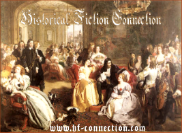Richard III (Oct 2, 1452 - Aug 22, 1485)
On this day in 1485, the most maligned King in English history was killed at the Battle of Bosworth field. He was betrayed by some of his lords and was "piteously slain and murdered" (as is recorded in the York City records), paving the way for the usurper Henry Tudor, Earl of Richmond (Henry VII). Thus began the Tudor Dynasty, based on a very weak and illegitimate claim to the throne, and the complete destruction of Richard's reputation.
The battle was mainly a hand-to-hand encounter (which was typical of the times), with the Stanley family (who had promised Tudor that they would desert Richard) keeping away from the fight until, at a critical moment when it was obvious which way the victory was headed, they joined Tudor. Richard, realizing that he was betrayed, cried out, "Treason, treason!" He knew he'd either leave as the King of England or dead and refused to leave the field until, overpowered by numbers, he fell dead in the middle of his enemies. He came very close to dispatching his enemy,
 Henry
Tudor, killing his standard barer, William Brandon (the father of
Henry VIII's close friend, Charles Brandon). The crown was supposedly
picked up on the field of battle and placed by Sir William Stanley on
the head of Tudor, who was at once proclaimed king by the whole army.
After the battle Richard's body was carried to Leicester, carried naked
across a horse's back, and buried without honor in the church of the
Greyfriars. His death was the end of the Plantagenet Dynasty which had
ruled England since the succession of Henry II in 1154.
Henry
Tudor, killing his standard barer, William Brandon (the father of
Henry VIII's close friend, Charles Brandon). The crown was supposedly
picked up on the field of battle and placed by Sir William Stanley on
the head of Tudor, who was at once proclaimed king by the whole army.
After the battle Richard's body was carried to Leicester, carried naked
across a horse's back, and buried without honor in the church of the
Greyfriars. His death was the end of the Plantagenet Dynasty which had
ruled England since the succession of Henry II in 1154.
Richard was not the
villain that his enemies made him out to appear. He had good qualities,
both as a man and a ruler, and seemed to have a sound judgment of
political needs (he had been able to keep the North of England in peace
for his brother). However, it is impossible to clear him of the crime,
the popular belief that was mostly likely the chief cause of his ruin -
the death of his nephews, Edward V and Richard, Duke of York, in the
Tower of London. He was not a monster but a typical man in an age of
strange contradictions of character, an age of refined (for the day)
culture mixed with horrible cruelty, and he possessed an emotional
temper that was capable of anything (he was a Plantagenet after all).
Tradition represents Richard as deformed but this has never been
proven. After his defeat at Bosworth, Tudor and his supporters needed
to solidify his claim to the throne and what better way to do that than
to make the English people think that the King he replaced was a
deformed, evil monster who killed his own nephews? No one did more to
cement that belief than William Shakespeare with his play Richard III
(who was undoubtedly writing to please the Tudors). They were hugely
successful in their endeavors and, unfortunately, this view of Richard
stuck until probably the 20th century when scholars really began to
study him.
Loyaulte me lie























